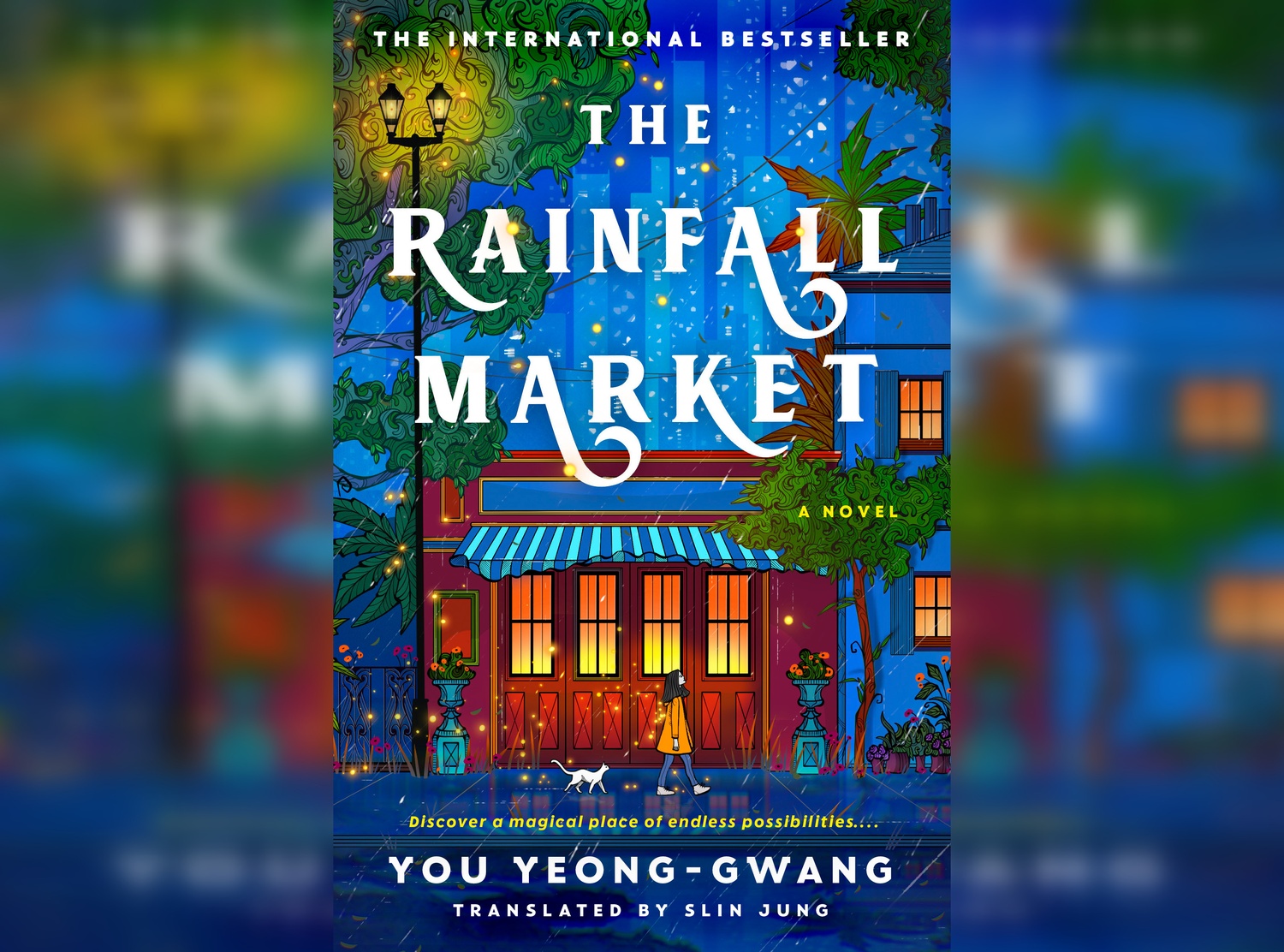
News
Summers Will Not Finish Semester of Teaching as Harvard Investigates Epstein Ties

News
Harvard College Students Report Favoring Divestment from Israel in HUA Survey

News
‘He Should Resign’: Harvard Undergrads Take Hard Line Against Summers Over Epstein Scandal

News
Harvard To Launch New Investigation Into Epstein’s Ties to Summers, Other University Affiliates

News
Harvard Students To Vote on Divestment From Israel in Inaugural HUA Election Survey
‘The Rainfall Market’ Review: A Journey Fit For a Childhood Dream Come True
4 Stars

In You Yeong-Gwang’s debut novel, “The Rainfall Market,” an ordinary middle schooler, Serin, ventures to a mystical market during the first rainy day of the season, searching for a life that will grant her escape from her current misfortune-riddled one. In “The Rainfall Market,” through the embellishment of a classic hero’s journey with lovable, individual characters and a memorable setting, You delivers a heartfelt message about how the grass is not always greener on the other side. Capturing the beauty of a classic fairytale, this debut coming-of-age fantasy fiction novel is well on its way to the reading lists and hearts of countless young readers worldwide.
When Serin gets an invitation in the mail from the Rainfall Market after submitting a letter about her misfortunes at home — a home on the verge of being snatched from her, with a tired mother barely making enough money to get by and no prospects for a future — she sets out on an adventure filled with looming uncertainty yet a bright hope for a better life. Complicating her quest is added pressure that she must find her perfect life within a week before the market’s closure so she does not cease to exist.
Throughout her journey, she befriends numerous Dokkaebi (giant, mythical Korean goblins) who sell her Dokkaebi Orbs, which contain the lives that the market’s customers seek. She is guided by a furry companion gifted to her by the market’s owner — a magical cat named Issha. All of her newfound friends play a crucial role in getting Serin one step closer to receiving the magical orb that holds the joyful future she is desperately after. Weaving together a tale as old as time and full of beautiful relationships made during a daunting adventure, You masterfully exhibits the priceless lesson of appreciating the circumstances one already has and living in each moment.
You’s ability to create unique personalities helps Serin shine even brighter. There are characters like the Dokkaebi Emma, an eccentric hairstylist with bright blue hair, who introduces herself by “practically rolling down the stairs.” In the next chapter, Serin meets a younger Dokkaebi named Mata who is found at an abandoned book shop “with his face behind a pile of books.” The rest of the Dokkaebi that Serin encounters also encapsulate such defining personalities, ranging from the likes of two loud and messy twin brothers who run a restaurant in the market to a gentle, elderly gardener.
No matter how big or small, animated or reserved, all of the characters come together at the end to help Serin in a time of need. The eccentric cast of characters creates a lively fictional world that is both whimsical and believable.
While the characters are lovable, the writing may pose a barrier in connecting with the story. Much of the prose used during actions presents itself as bland and stationary, introducing a rigidity to the text that reduces the emotional impact of scenes. For instance, when Serin encounters a breathing, lively forest, the translation by Slin Jung states, “The forest in front of her was moving.” The simple language is easy to understand but doesn’t inspire any longlasting emotions.
Moreover, the storyline is quite predictable, which leaves little to the reader’s imagination about the story’s conclusion. Therefore, the book may not be the most entertaining for older fantasy fanatics, but it is written wonderfully for younger students to enjoy.
Though the novel follows the structure of a typical fairy tale pretty straightforwardly, the author’s background itself adds a complex layer of sentimentality. You wrote this story while delivering food for a living, wanting to spread courage to his readers to pursue happiness akin to what he felt while writing his story. The story benefits from the hazy, nostalgic feel of Studio Ghibli movies while simultaneously showcasing the modernity of today’s day and age — it’s sure to remain in the hearts of young readers worldwide.
—Staff writer Anmol K. Grewal can be reached at anmol.grewal@thecrimson.com.
Want to keep up with breaking news? Subscribe to our email newsletter.
